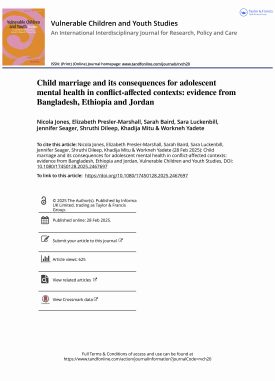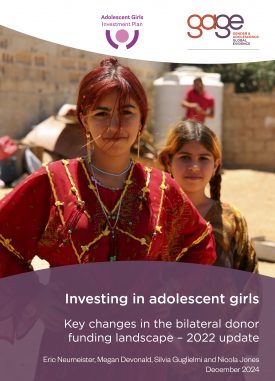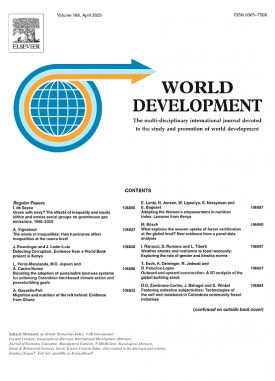As adolescent girl programmes around the world adapt to the COVID-19 pandemic, life skills programming remains a critical part of girls’ education. It is important to consider how to adapt programmes in terms of the content and the delivery approach in order to help girls navigate the added risks they may now be facing.
There is substantial evidence that life skills programming for adolescent girls contributes to:
- psychosocial, health, economic and learning outcomes
- reduced exposure to gender-based violence (GBV)
- personal wellbeing
- greater social, political, and economic inclusion
- postponed marriage and greater agency in family planning.
The promotion and acquisition of life skills is an important element in preparing highly marginalised adolescent girls for their transition into adulthood. This is particularly important in contexts where access to appropriate information, guidance, role models and services is limited.
This briefing offers guidance on how to align the design, delivery, monitoring and evaluation of essential life skills programming for girls. It provides a life skills framework for implementers to consider how best to adapt their programming interventions under the unique conditions created by COVID-19.
Suggested citation
Boost, E., Jones, N. and Kwauk, C. (2020) Life skills for adolescent girls in the COVID-19 pandemic. GEC, GAGE and Brookings Institution (https://www.gage.odi.org/publication/life-skills-for-adolescent-girls-in-the-covid-19-pandemic/)


